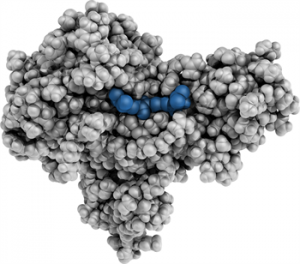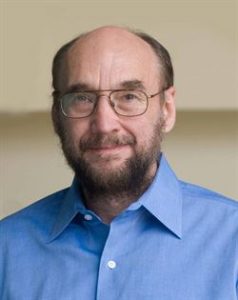4.27.17 | Biochemistry News | Original Publication
Faculty from the Department of Biochemistry are leading two projects that recently earned UW2020: WARF Discovery Initiative awards, in addition to numerous other department faculty being collaborators on many projects.

Professor Julie Mitchell is the principal investigator on “An Adaptive Computational Pipeline to Accelerate Drug Discovery,” and professor Robert Landick is heading “Bringing the Cryo-electron Microscopy Revolution to UW–Madison.”
The recent awards represent the third round of UW2020 funded projects since the initiative was launched last year. The goal of UW2020 is to stimulate and support cutting edge, highly innovative, and groundbreaking research at the University of Wisconsin–Madison and the acquisition of shared instruments or equipment that will open new avenues for innovative and significant research.
“These awards position our faculty to be even more successful as they apply for extramural funding in an increasingly competitive environment,” says Marsha Mailick, UW–Madison Vice Chancellor for Research and Graduate Education. “Innovative ideas like those proposed for UW2020 are critical to maintaining UW–Madison’s world-class research standing, and we are extremely grateful for WARF’s continuing support for this initiative.”

Mitchell’s project will utilize algorithms and other computational tools to speed the screening process for new drugs. Scientists use drug screens to search for new compounds that can, for example, bind to the cellular machinery that allows bacteria to multiply. If the compound can bind and stop that process, it can slow a bacterial infection.
However, the process can require testing hundreds of thousands of random compounds. Mitchell and her team’s project hopes to use math to quicken this process. An analogy she gives is popular with many music streaming services: ask users to rate a few well-known songs from various genres, and depending on users’ rankings, the program would suggest jazz to one and perhaps more country to another.
The researchers’ want to bring this approach to drug discovery. In an initial, inexpensive screen with a wide array of molecules they would see what types are likely to bind to the target researchers are interested in. Using that data, they would utilize mathematical calculations to be better educated about what compounds they should continue screening with, eliminating the need for such a large number and making the process more efficient and effective.
“This can have great impact because it can bring drug discovery capabilities to labs that previously wouldn’t have been able to afford these screens,” says Mitchell, who is also a faculty member in Mathematics. “Because we can screen fewer molecules through this adaptive and iterative machine learning process, the screens are cheaper and are more in reach for researchers without extensive resources.”

Landick’s project represents a research infrastructure investment by UW-Madison that involves a technology for solving the structure of macromolecules, viruses, and cellular substructures. The process is called cryo-electron microscopy, referred to as cryo-EM. Their UW2020 grant will help create a state-of-the-art cryo-EM facility at UW–Madison and hire a Ph.D.-level staff member to facilitate its use with scientists across campus.
Solving the structure of biological molecules is an important first step in understanding the biology behind basic processes that are essential to life. The data often aid areas such as drug discovery, as researchers can take advantage of structural information to search for possible disease treatments.
“I think cryo-EM has emerged as an indispensable method for structural analysis in the biosciences, and it is not hyperbole to say that it is revolutionizing our understanding of large macromolecular machines,” Landick says. “For UW–Madison to remain a powerhouse in bioscience research, it is crucial that modern cryo-EM capabilities be brought to campus. The UW2020 award is a major step in a broader plan to achieve that goal.”
Other biochemistry faculty listed on UW2020 award winning projects include:
- Richard Amasino and Michael Sussman, co-investigators: A Plant Phenotyping Core at the Wisconsin Crop Innovation Center to Enable Discovery and Technology Transfer
- Katherine Henzler-Wildman, co-investigator: Acquisition of State-of-the-Art Solid-State NMR Instrumentation Enabling Characterization of Nanoparticles, Catalysts, Other Novel Materials, and Biochemical Systems
- Sam Butcher, co-principal investigator; Katherine Henzler-Wildman, Hazel Holden, Aaron Hoskins, John Markley, Tom Martin, Julie Mitchell, Ann Palmenberg, Ivan Rayment, and Michael Sussman, co-investigators: Bringing the Cryo-electron Microscopy Revolution to UW-Madison
- Vatsan Raman, co-principal investigator: The Human Microbiome in Health and Disease
- Julie Mitchell, co-investigator: Laying the Foundation for a New NSF-Funded Mathematics Institute